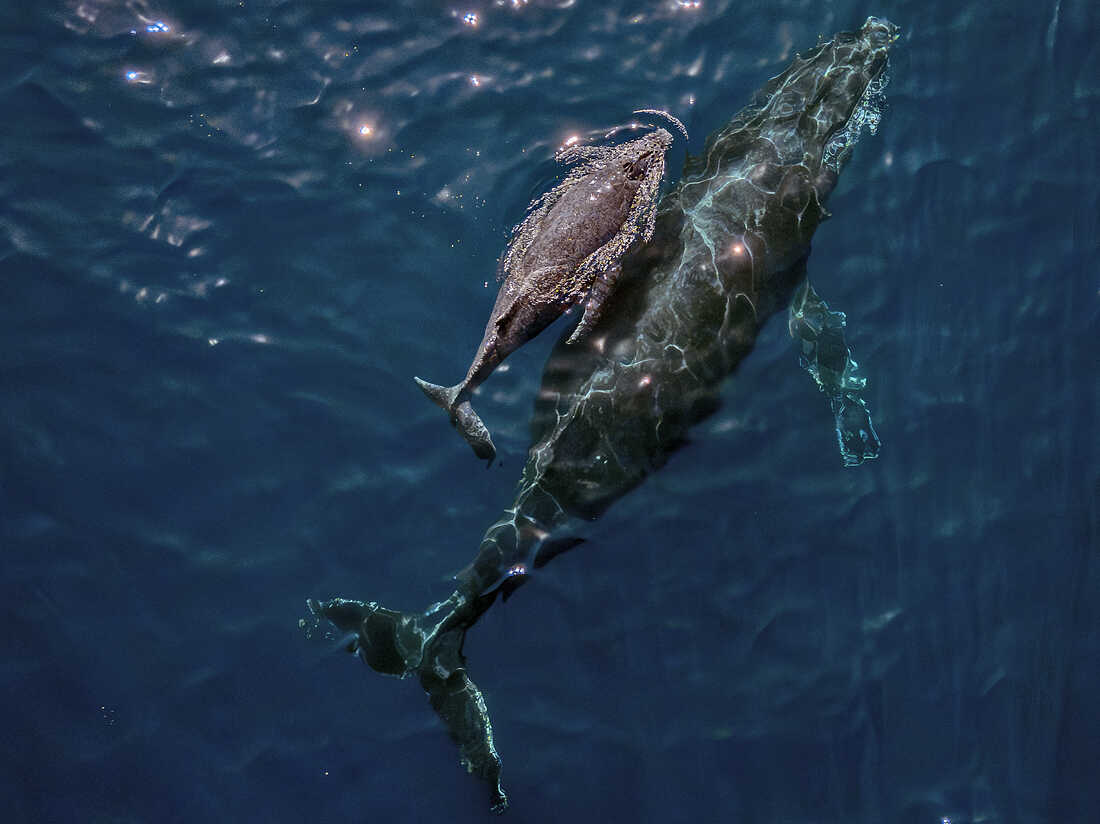Indigenous leaders want to protect whales by granting them legal personhood
Indigenous leaders want to protect whales by granting them legal personhood

A mother humpback whale and calf are seen on the coast of Vitoria, Espirito Santo state, Brazil on August 22, 2023. Carl de Souza/AFP via Getty Images hide caption

A mother humpback whale and calf are seen on the coast of Vitoria, Espirito Santo state, Brazil on August 22, 2023.
Carl de Souza/AFP via Getty ImagesIndigenous leaders across the Pacific have signed a treaty granting whales legal personhood. What protections will the designation offer the large mammals?
STEVE INSKEEP, HOST:
All right. You know that old phrase about how corporations are people? Well, if corporations can be people, why not animals? Let's say whales.
(SOUNDBITE OF WHALE)
A MARTÍNEZ, HOST:
Wow. There you go. Sounds good to me. Now, in an effort to protect whale populations from the effect of climate change, Indigenous leaders across the Pacific have signed a treaty granting all whales legal personhood. It's a step Mere Takoko says will pressure governments to do more to help the large mammals.
MERE TAKOKO: What we're trying to achieve here is to provide whales with certain rights. Those rights include the right to freedom of movement, to natural behavior development, to cultural expression, which includes their language, to a healthy environment, healthy oceans, and, indeed, the restoration of their populations.
INSKEEP: She's a conservationist, and she leads the Hinemoana Halo Ocean Initiative, which spearheaded this treaty. It's a group that is based in New Zealand and in the Cook Islands. She says this agreement lays the groundwork for legislation to protect whales, who are considered sacred ancestors by many.
TAKOKO: We have very intimate relationships with them, so they're a huge part of our culture, a huge part of our narrative.
MARTÍNEZ: Without whales, Takoko says, the web of all marine life would collapse. Rising ocean temperatures have disrupted their migratory patterns.
INSKEEP: And some of them wander into the paths of ships. Thousands are killed every year by ship strikes alone. That's where the legal protections of personhood could make a difference, according to Ralph Chami, who is the lead economist behind this initiative.
RALPH CHAMI: You hit the whale, you pay $2 million, or you slow down and change direction.
INSKEEP: In other words, the penalties are meant to deter strikes on whales.
CHAMI: It goes into effect immediately. Now, the issue is how to enforce it.
MARTÍNEZ: Using this tactic to protect nature is not a new idea.
CHAMI: In Costa Rica, they confer personhood on bees. In Panama, they confer personhood on leatherback turtles. In Ecuador, nature has rights.
MARTÍNEZ: And both New Zealand and Bangladesh have granted rivers personhood.
INSKEEP: Granting rivers personhood - also a way to confront environmental threats.
CHAMI: So this whole thing is to make, in this case, the whale visible.
INSKEEP: The effort for many people is more than a legal matter. It's spiritual.
(SOUNDBITE OF MUSIC)
Copyright © 2024 NPR. All rights reserved. Visit our website terms of use and permissions pages at www.npr.org for further information.
Accuracy and availability of NPR transcripts may vary. Transcript text may be revised to correct errors or match updates to audio. Audio on npr.org may be edited after its original broadcast or publication. The authoritative record of NPR’s programming is the audio record.

